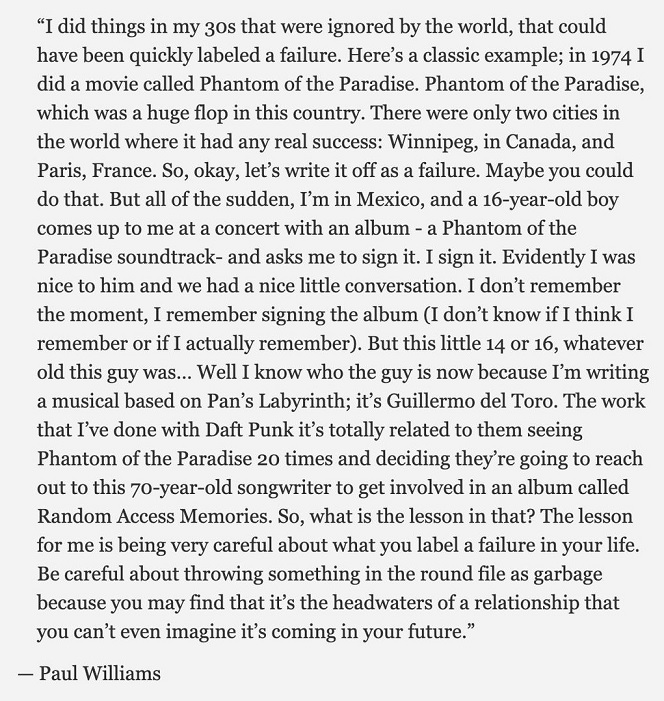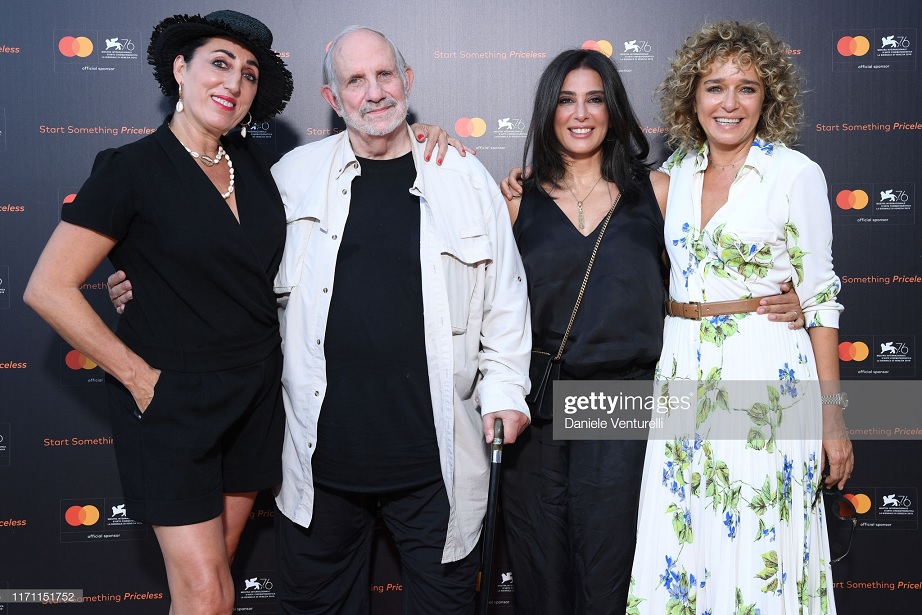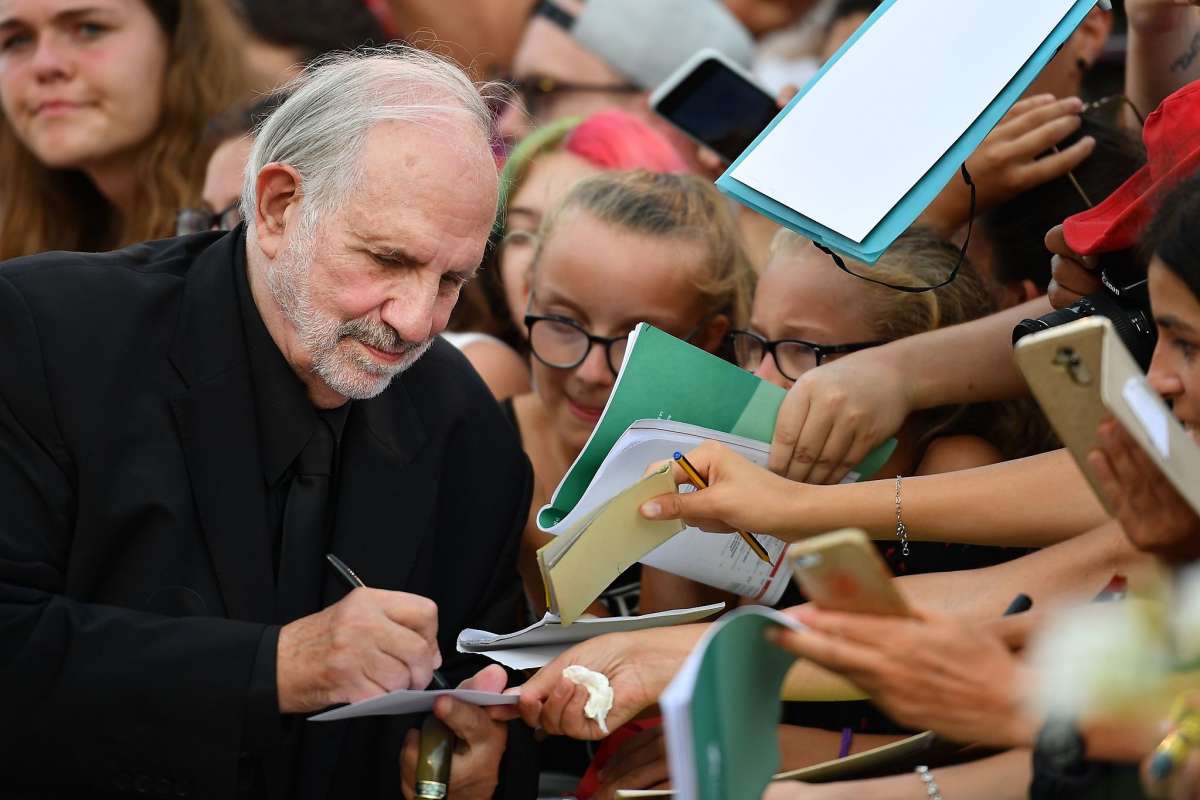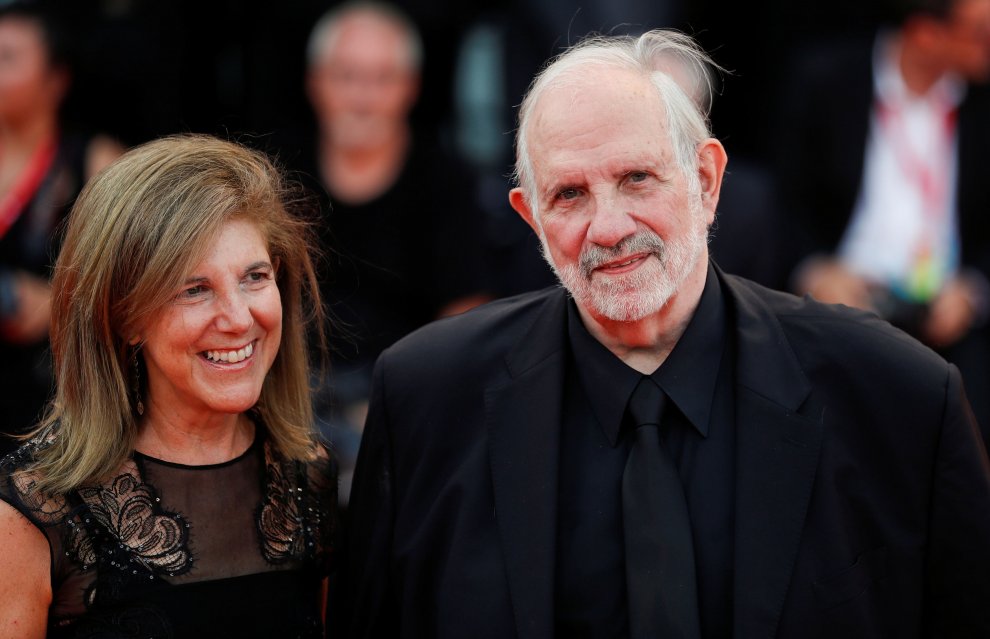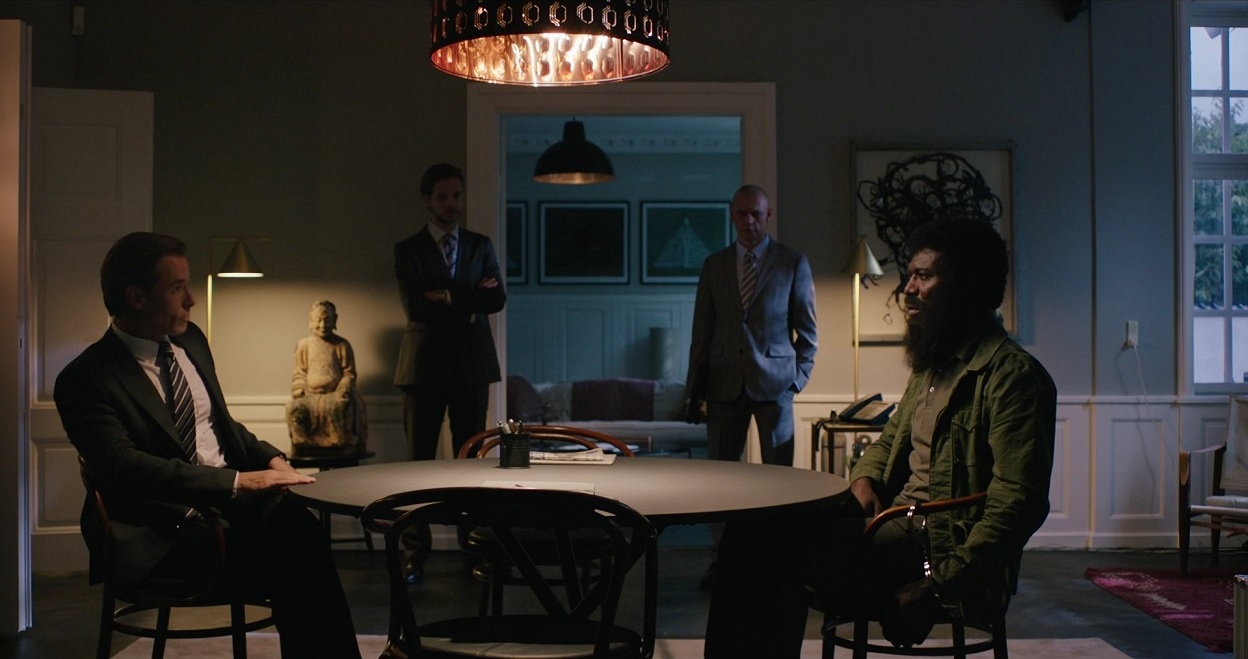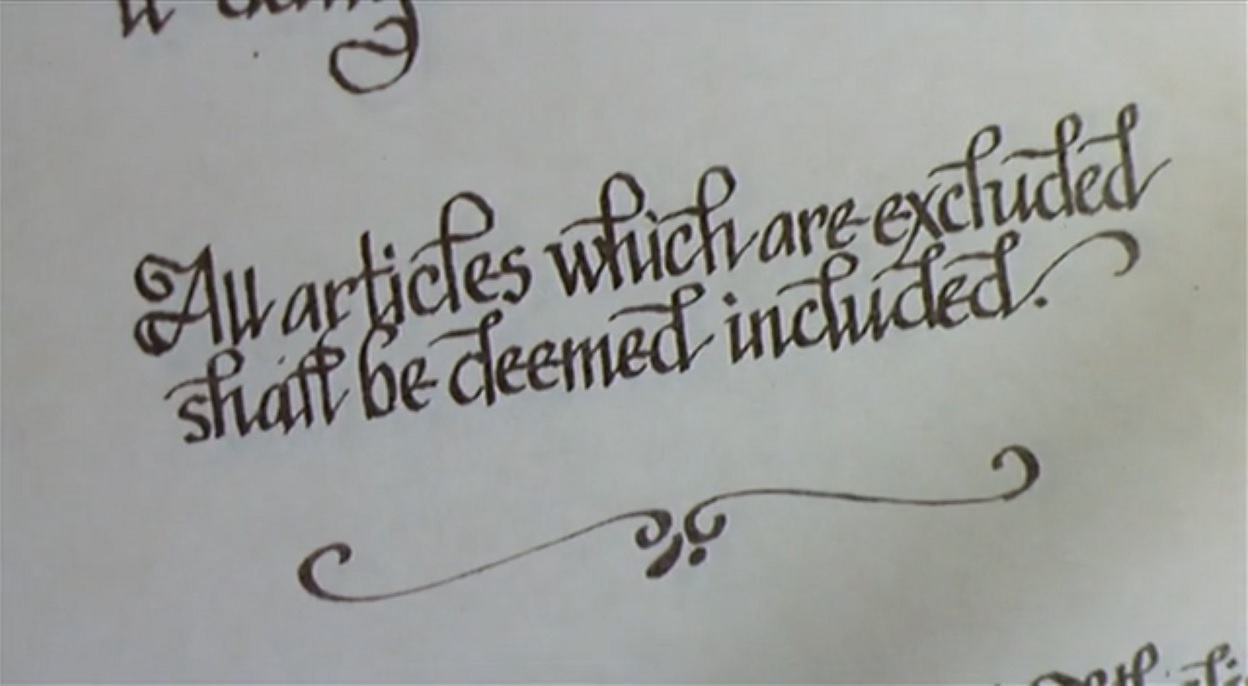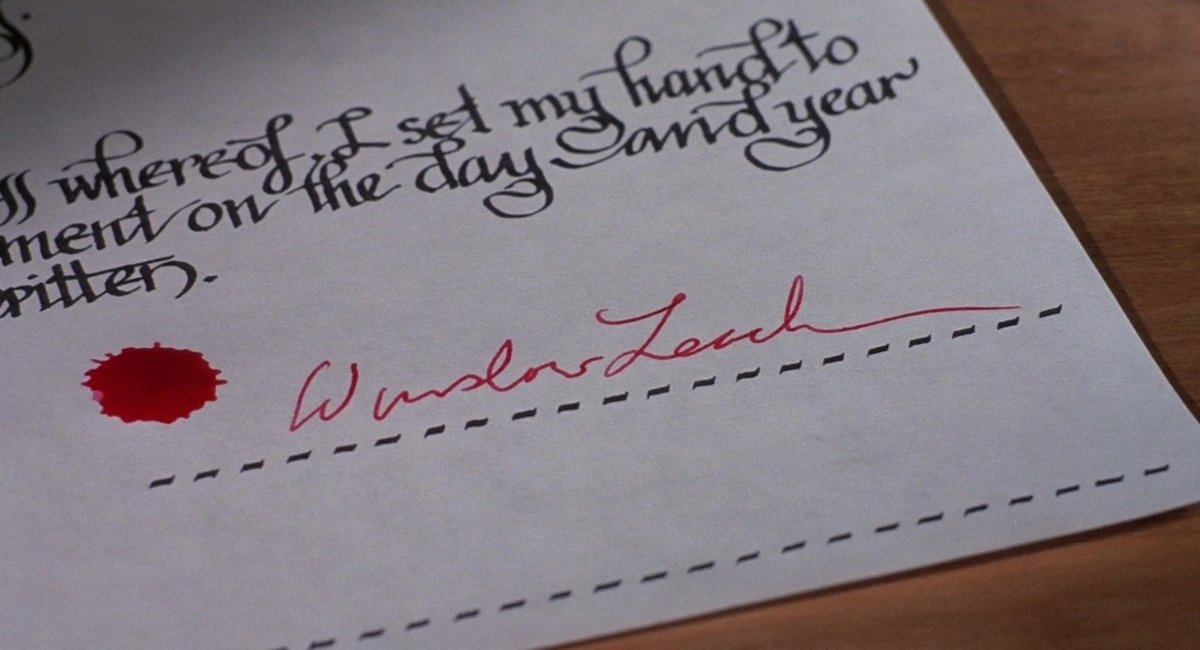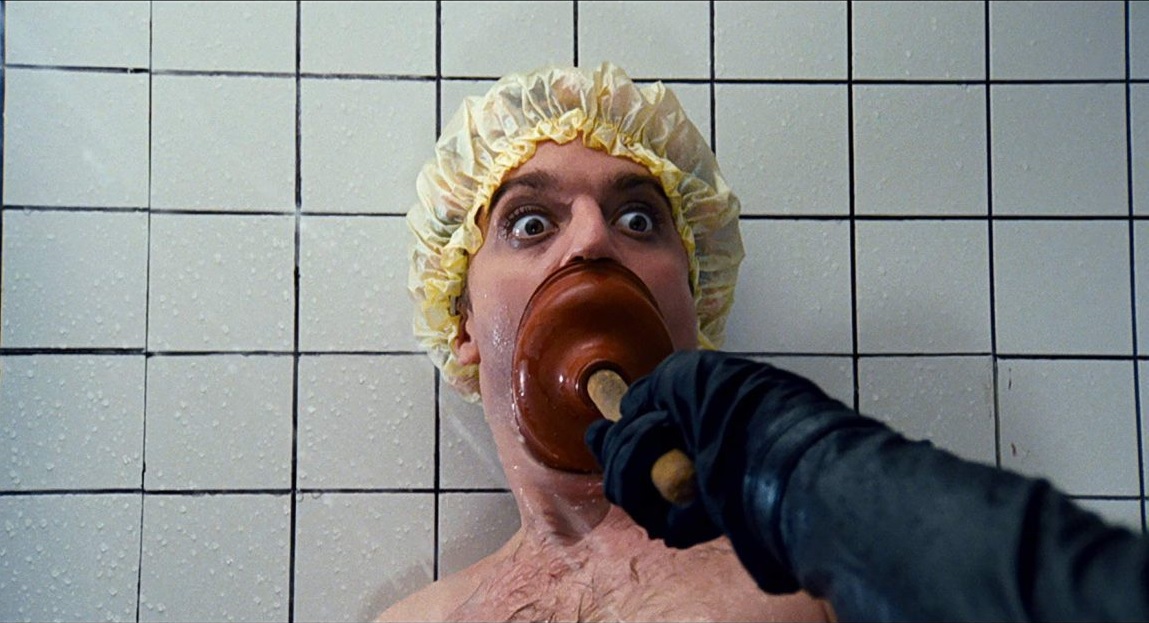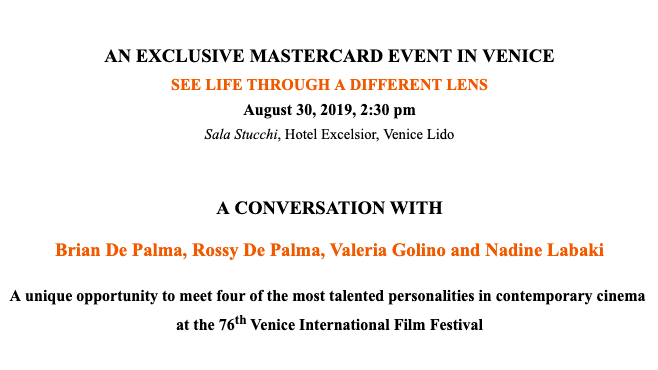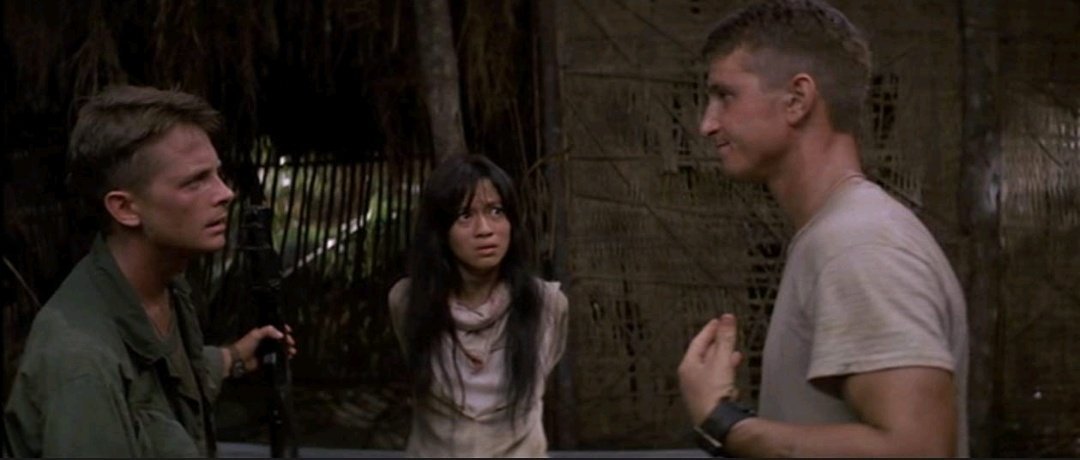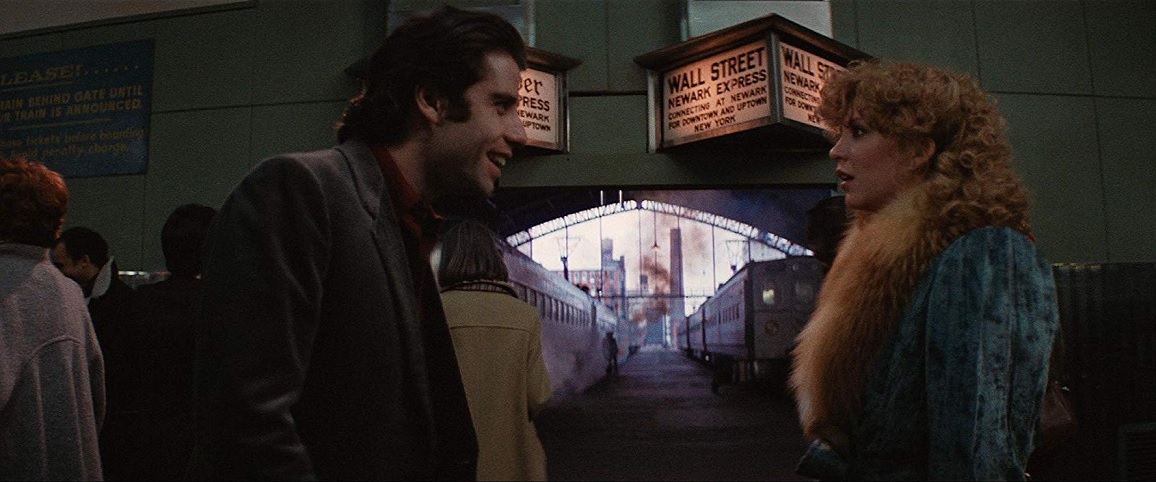CHALLENGE AS HE HEADS TOWARD 80: "IF I GET TO MAKE A COUPLE MORE PICTURES, GREAT"
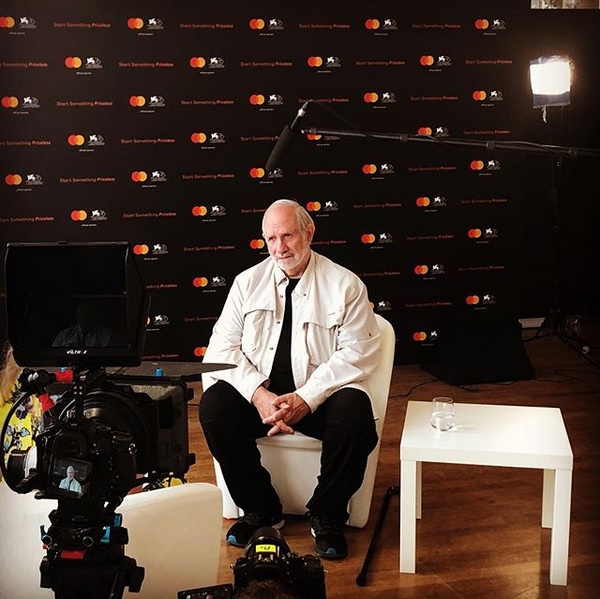
It appears that Brian De Palma may have sat down for an extra Mastercard Masterclass the other day, or perhaps for a few minutes with the press, before or after the Mastercard conversation with Rossy De Palma, Nadine Labaki, and Valeria Golino. A rough-cut Reuters video is posted at One News Page. Meanwhile, Mike Davidson of Reuters filed an edited interview article that posted earlier this morning, under the headline, "A Minute with: Brian De Palma on horror, #MeToo and critics"...
VENICE, Italy (Reuters) - Veteran film director Brian De Palma, maker of “Carrie” and “Scarface”, has no intention of retiring yet, though he is 78, and is now working on a horror movie inspired by the scandal engulfing Hollywood producer Harvey Weinstein.Some 70 women have accused Weinstein of sexual misconduct dating back decades. Once among Hollywood’s most powerful producers, Weinstein has denied the accusations and said any sexual encounters were consensual. He has pleaded not guilty to the criminal charges against him.
In an interview with Reuters during the Venice Film Festival, where De Palma revisited his career in a masterclass, the director spoke about sexual misconduct in Hollywood, dealing with bad reviews and adapting to changes.
Below are edited excerpts of the interview.
Q: There is talk you are looking to revisit the horror genre maybe with a take inspired by the Harvey Weinstein scandal. Why that subject matter?
De Palma: “Because my years of working in and out of Hollywood you were very aware of the kind of abuse to women that was going on. And being a director who directs women all the time you are very sensitive in how they are treated in the movie that you are making. So I was aware of some of the things that were happening during the Harvey Weinstein era and it is an interesting story to tell, plus, I like the sort of suspense drama and I created a script that is sort of based on some of the real cases reported in the New York Times. But it is basically a suspense film using that as the historical backdrop.
Q: Did the #MeToo movement need happen to bring change?
De Palma: “It annoyed directors like myself and others of my contemporaries because as directors you deal with actors all the time. And you must engender their trust. And if you... take them out to dinner or abuse them, it goes against what you are trying to do to gain their trust in order for them to be as free when they perform in their movies. It is basically crazy and people who do it, I always have felt are misusing their power.”
Q: You have had a feisty relationship with some of the film press. Do you think some of that was unjustified in the past?
De Palma: “You are always judged against the fashion of the day so you can’t take it too seriously. A lot of my films did not do well when they came out and were not particularly reviewed well and people are still talking about (them) today.
At the time it can be quite hurtful but if you outlive it you will be surprised what remains important in cinema over the years.”
Q: A number of your films in the 1980s had the feistiness of Hollywood then. It seems those films are now out of vogue.
De Palma: “It is a skill. Not only that, whatever happened to beauty in cinema? When was the last beautiful picture you saw where people were lit beautifully? That means you have to sit or be in a particular light and say your lines so that you are hit a certain way like they did in the 1930s and the 1940s. You don’t see that any more.”
Q: What challenges have you faced as the industry changed?
De Palma: “You try to do the best you can but in the immortal words of (director) William Wyler ‘Once your legs go it is time to hang up your riding crop’ basically. It gets more difficult to make movies if you physically have limitations so if I get to make a couple more pictures, great, but as you are heading into 80, it becomes quite a challenge.”
DE PALMA, AGAIN: "At the time it can be quite hurtful but if you outlive it you will be surprised what remains important in cinema over the years."
Updated: Monday, September 2, 2019 11:06 AM CDT
Post Comment | View Comments (2) | Permalink | Share This Post




